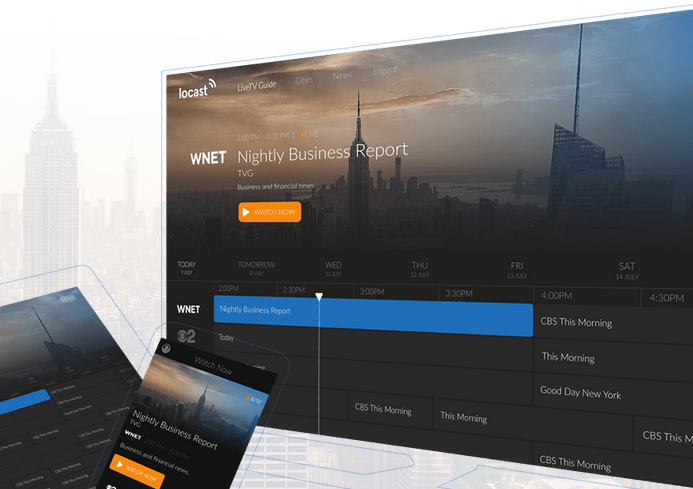Locast Could Be A Retrans Player

The smarter way to stay on top of the multichannel video marketplace. Sign up below.
You are now subscribed
Your newsletter sign-up was successful
WASHINGTON — Broadcasters and Hollywood studios may continue to be mum on Locast, a service that streams local TV stations online for free, but at least one cable operator was talking it up to subscribers impacted by retransmission consent impasses.
Charter Communications told its Spectrum subscribers about the service in markets where Tribune Broadcasting stations had been blacked out and Locast is available, including New York, Houston, Dallas and Denver, before the parties reached a new retrans pact on Friday (Jan. 11).
Locast now has more than 50,000 registered users in seven markets (also including Chicago, Philadelphia and Boston), according to founder David Goodfriend. He said there has “definitely” been a spike in usage since the Charter-Tribune signal takedown, though he said he can’t be sure if that’s due to the retrans fight, a sports-related seasonal boost or some combination of the two.
A free service, Locast provides TV stations to registered users in the seven markets with no permission and no copyright fee. It uses a provision of copyright law that allows nonprofits to retransmit TV station signals without asking permission. Locast asks members for contributions but doesn’t charge for service, otherwise it would have to negotiate for carriage like cable operators and other MVPDs.
Jan. 11 is the one-year anniversary of the launch of the service, and the National Association of Broadcasters and the Motion Picture Association of America still haven’t taken legal aim at Locast, Goodfriend said. Neither trade group has been reluctant to sue over-the-top services such as Aereo or FilmOn for streaming without permission or payment. (Neither NAB nor MPAA had any comment on the service.)
There are several possible reasons, including that with reverse compensation to pay and networks striking OTT content deals that do not include local station advertising, getting additional eyeballs to that content may not be so bad for affiliates. Networks and their owned stations might view things differently, though, as delivering network content free over the internet could undercut their OTT deals. They also may not want to have a court confirm that Locast is indeed protected by copyright law.
As for non-network stations, “independent broadcasters have been very supportive of Locast,” Goodfriend said. Locast is leasing a broadcaster’s antenna mast in Philadelphia to pick up signals in that market, he said, and in New York a station sought Locast out to put its primary and multicast signals on the service.
The smarter way to stay on top of the multichannel video marketplace. Sign up below.
Locast could become a more widespread alternative for getting TV signals to cable subscribers during blackouts. The hope is to expand to two more East Coast markets by month’s end, Goodfriend said, and to be at 100,000 users “soon.”
Contributing editor John Eggerton has been an editor and/or writer on media regulation, legislation and policy for over four decades, including covering the FCC, FTC, Congress, the major media trade associations, and the federal courts. In addition to Multichannel News and Broadcasting + Cable, his work has appeared in Radio World, TV Technology, TV Fax, This Week in Consumer Electronics, Variety and the Encyclopedia Britannica.

